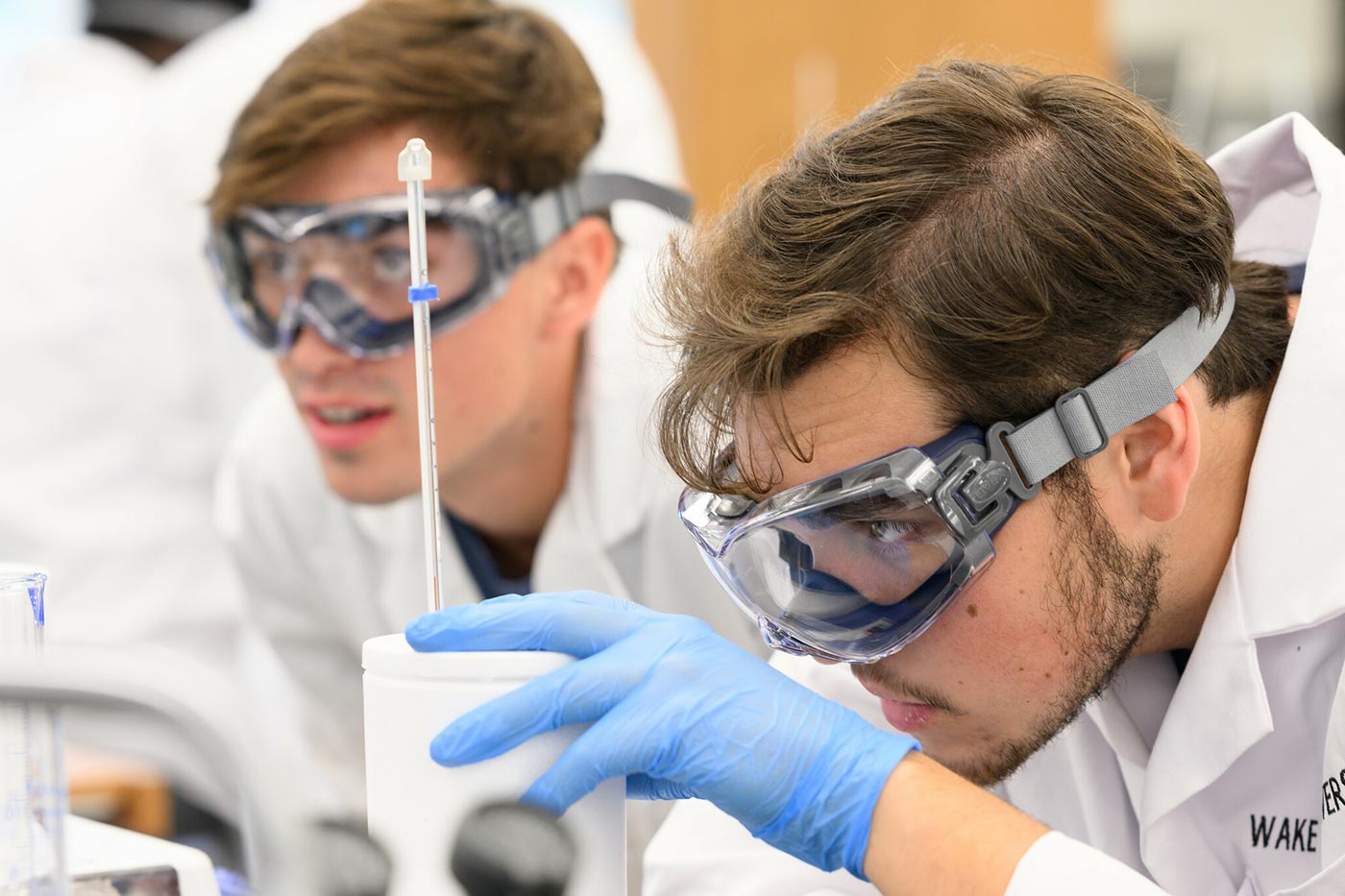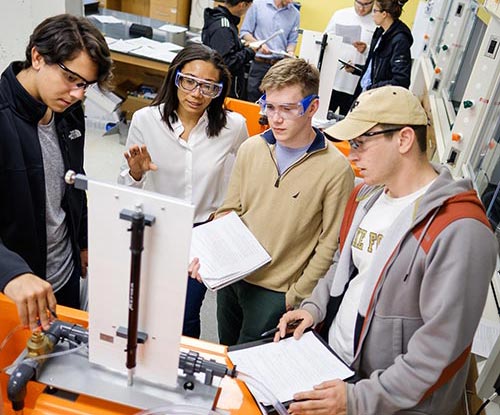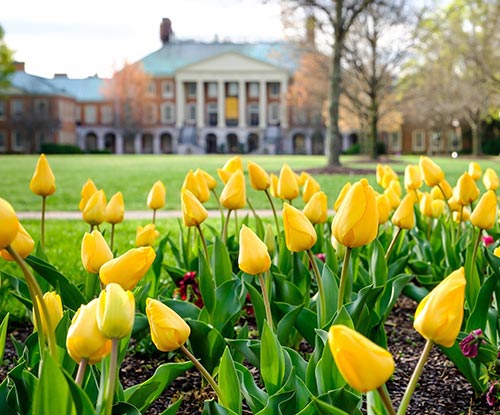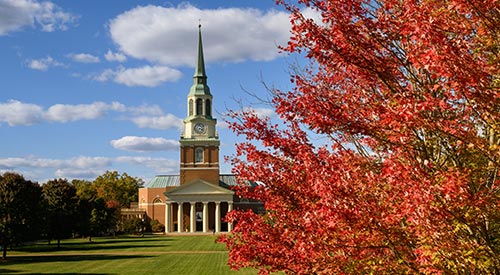Chemistry

Chemistry Degree
Bachelor of Science, Bachelor of Arts, Minor
Program Type:
Major, Concentration, Minor
Career Path:
STEM (Science)
Program Site:
College or School:
Why study Chemistry?
Chemistry provides answers to questions about the living and material world around us. Knowledge of chemistry is essential to understanding fields ranging from cell biology to materials science.
- Four majors certified by the American Chemical Society are offered: (B.S., B.S with concentration in Medicinal Chemistry & Drug Discovery, B.S with concentration in Biochemistry, B.S with concentration in Materials Chemistry) as well as a Bachelor of Arts.
- In the 2024 edition of Undergraduate Research Day, the celebration of collaboration held on Family Weekend each year, 61.1% of tenured or tenure-tracked faculty mentored one or more students who presented their findings.
The Chemistry degree is offered as a Bachelor of Science (B.S.), Bachelor of Arts (B.A.), and a minor.
What classes would I take?
Our model and curriculum educate the whole person and often help students discover interests they had never previously discovered. Students generally take 100-200 level courses during their first year of college, while registering for higher level courses as upperclassmen.
Sample courses* that you may take as a Chemistry student include:
100-200 level
- College Chemistry
- Problem Solving in Chemistry
- Organic Chemistry
- Physics and Chemistry of the Environment Lab
- Theory and Methods of Quantitative Analysis Lab
300 level
- Intermediate Organic Chemistry
- Medicinal Chemistry
- Chemical Analysis
- Nanochemistry in Energy and Medicine
- Biochemistry
* Course availability and offerings can change at any time. Refer to the Academic Bulletin to view all major requirements.
What kind of experience will I gain?
Chemistry majors develop skills that may lead to a wide variety of occupational tracks. Trained to think both analytically and creatively, chemists solve practical as well as research problems– skills that are readily transferable to many careers.
Students in this program will develop the following skills:
- Ability to make critical observations and appropriate decisions
- Ability to operate scientific equipment
- Ability to organize and maintain accurate records
- Good vision and manual dexterity
- Ability to conduct and clearly explain scientific research
- Strong mathematical background
Are there extracurricular activities?
Joining a club or organization is a great way to get involved and do more with your major. Our Chemistry students participate in the following programs:
- American Chemical Society
- Beta Beta Beta
- Bioethics Club
- Women in STEM
What kind of job can I get?
Careers that often interest Chemistry majors, and fields our graduates work in, include:
- Astronomer
- Chemical Engineer
- Chemist
- Dentist
- Dietician
- Educator
- Food and Drug Analyst
- Food Technologist
- Forensic Chemist
- Genetic Counselor
- Hospital Administrator
- Laboratory Analyst
- Medical Laboratory Technician
- Medical Researcher
- Meteorologist
- Pharmaceuticals Researcher
- Pharmacist
- Physician
- Toxicologist
Kasha Patel (’12) is a former NASA climate-change researcher who has become a reporter and editor on the topic for The Washington Post. For several years, she has managed to do the impossible: stand-up comedy based on science.
In addition to graduate studies at universities including Harvard, Johns Hopkins, Vanderbilt and Wake Forest, the first few cohorts of graduates have worked as an Emergency Medical Technician and product-development executives, among other industries and jobs.
Related Programs

Majors & Minors
Choose from more than 50 majors and over 60 minors to find your perfect fit.

Life at Wake
Take a moment to explore all the student experiences that make Wake Forest unique.

Virtual Tour
Can’t make it for a visit? No problem! Let us show you around campus virtually.

Keep in Touch
Let us know you’re interested in Wake Forest and we’ll do the rest.

Visit Campus
You truly can’t appreciate the beauty of our campus until you experience it for yourself.

Apply
Want to be considered for our next class of Demon Deacons? Here’s how to get started.
